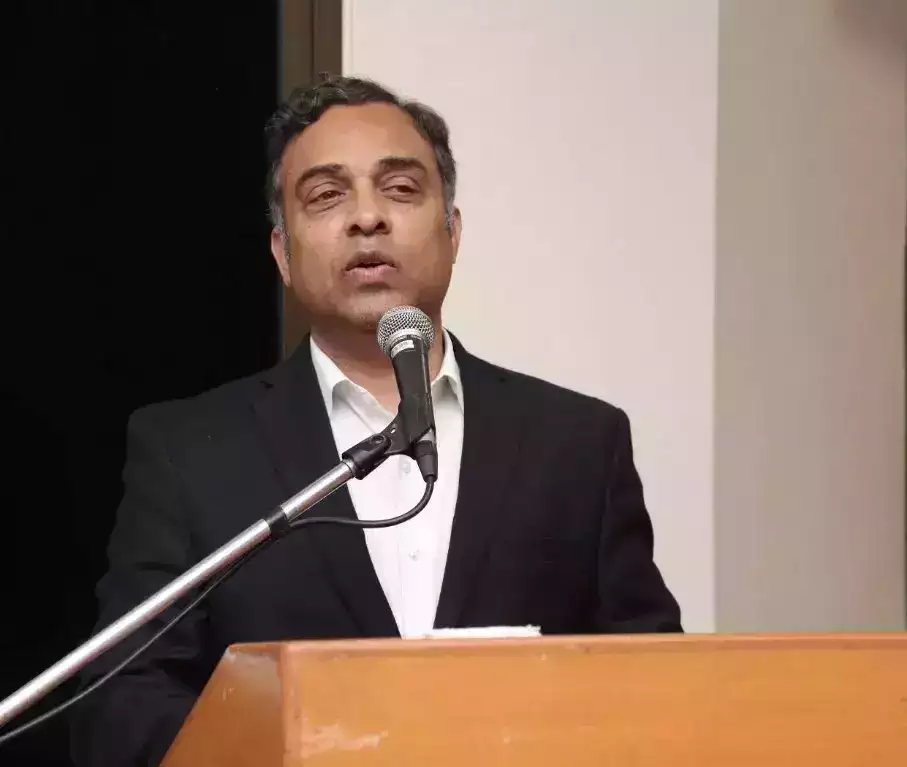
Pithampur: If India has to make its automobile industry globally competent and a force to reckon with, the testing agencies need to focus on one of our core strengths of R&D in engineering and design, Dr. Hanif Qureshi, Additional Secretary, MHI (Ministry of Heavy Industries), said on Saturday.
In his address at the NATRAX conference on ‘Global Presence of Indian Test Agencies- Way Forward’ at Pithampur, Madhya Pradesh, Dr. Qureshi said, “There is a requirement of some kind of support for the testing agencies from the Government of India and the ministries are aware of the matter. We are working on how that extra support can be given.”
“If support is provided, I would encourage the directors of testing agencies to formulate how they propose to utilize it and what are the areas where they want to spend it, and what is the ROI they expect out of it,” the official said.
Under the NATRIP (National Automotive Testing and R&D Infrastructure) project, which completed in March 2021, the government provided support in establishing homologation and testing centres for vehicles and its systems at iCAT- Manesar (International Centre for Automotive Technology), GARC-Chennai (Global Automotive Research Centre), NATRAX- Indore (National Automotive Test Tracks) and upgraded facilities at ARAI - Pune (Automotive Research Association of India), VRDE- Ahmednagar (Vehicle Research and Development Establishment).
After the project, which completed at a total cost of INR 3,558.60 crore, NATRIP centers were thereon conceived to eventually become self-sustainable in terms of earning revenues.
Dr. Qureshi noted that the revenues of testing agencies have grown over the years. NATRAX reported a 3X growth in revenue during FY24, while iCAT said it has seen a 26% CAGR over the past 15 years. To a great extent, their model of revenue generation is by providing vehicle testing and certification. “Going forward, the revenue stream will have to change.”
He sees testing agencies as vehicle development partners, and believes that in line with the FAME (Faster Adoption and Manufacturing of (Hybrid &) Electric Vehicles) and PLI (Production Linked Incentives) schemes, there is a greater need to expand in new areas.
“A lot of big-sized companies have their own tracks and testing facilities, but small-sized companies require help in prototype development and testing.The skills and expertise of the testing agencies must be utilized here. We will have to look at not only vehicle testing but their development also, for smaller companies,” he said.
The official pointed out that there is a potential challenge of capacity with regards to the PLI-ACC scheme. “The first set of advanced chemistry cells have been rolled out by one of the companies and they have to be tested. While there are about six NAB (National Automotive Board) approved labs which offer testing facilities, the time taken to test these is quite long, and the volume of these cells is going to increase significantly. So we need to expand those capacities also.”
According to the Economic Survey 2022-23, EVs (electric vehicles) are envisaged to grow at a CAGR of 49% till 2030, and the domestic market is expected to touch 1-crore units in annual sales by 2030 and is likely to create 5 crore direct and indirect jobs.
Last month, the government launched the EMPS (Electric Mobility Promotion Scheme) to promote the nascent EV industry including acceleration in adoption and manufacturing, particularly two-wheelers and three-wheelers.
Dr Qureshi stressed on the need for collaboration among India's testing agencies. “With the launch of the new scheme, the workload of the testing agencies is going to increase a lot. A number of OEMs have been checking in if the certificates issued in their home countries will be valid in India. But we do not know from which countries those cars will be coming to India and that is where collaboration among the testing agencies is important. We do not want to duplicate the work.”
“The growth of the automobile industry must be our prime target, but along with that we must think of localisation. We cannot just import everything and say that now we have the largest number of vehicles,” he said in what can be seen also as a message especially for EV makers.
The bureaucrat also pointed out the importance of active inputs from the industry to devise efficient policies as they "cannot be made in vacuum".
Disclaimer: The copyright of this article belongs to the original author. Reposting this article is solely for the purpose of information dissemination and does not constitute any investment advice. If there is any infringement, please contact us immediately. We will make corrections or deletions as necessary. Thank you.





